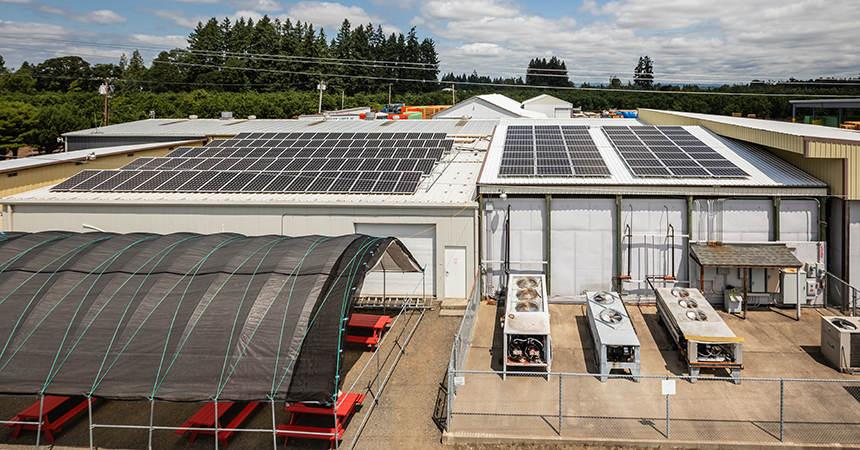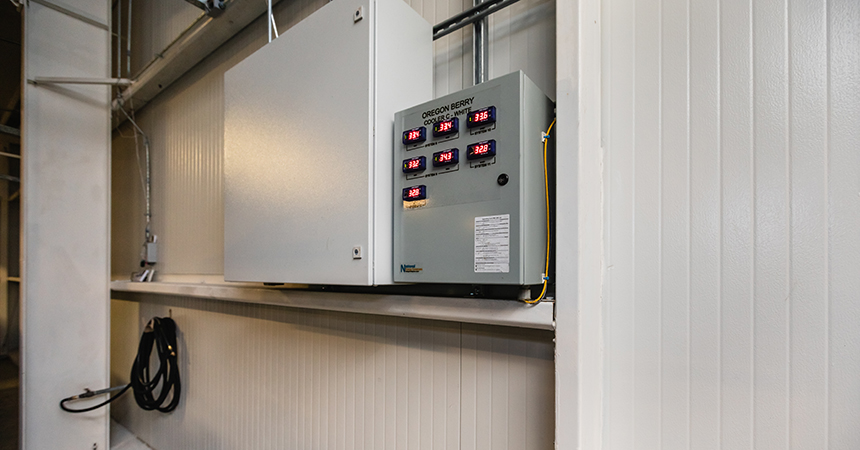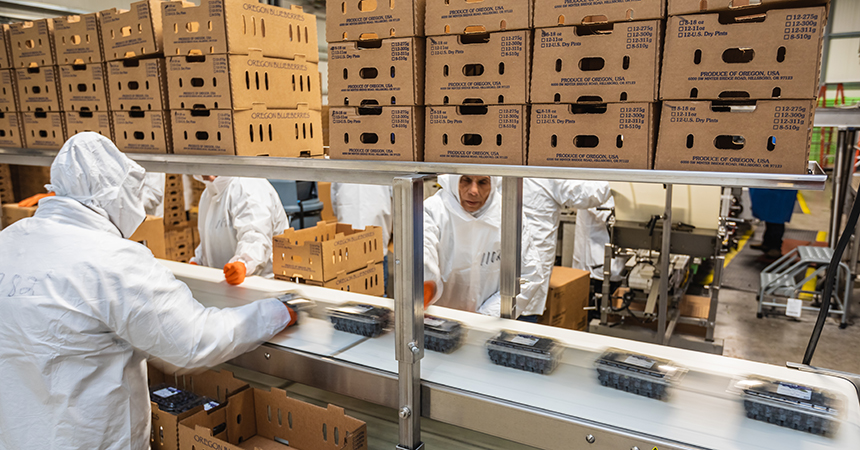
Oregon Berry Packing Inc., in Hillsboro, has high standards for the blueberries, strawberries and black raspberries it supplies to premium buyers worldwide. Those standards include a strong commitment to sustainability. Solar panels on the roof combined with high-efficiency refrigeration controls and high-speed doors in its processing plant, have decreased annual energy purchased by an estimated 1.2 million kilowatt hours—saving the family-owned business more than $80,000 per year.

The company proudly displays the output from its 34-kilowatt solar system on a monitor in the lobby. “The monitor prompts discussions with customers about how we’re constantly improving all aspects of our operation, including sustainability,” said Jeff Malensky, president at Oregon Berry Packing. “Increasingly, buyers in the foodservice industry are looking for suppliers who are reducing their carbon footprint.”
Inside the processing plant, high-efficiency refrigeration controls trim energy use while keeping berries at 34 degrees F—a critical factor in maintaining that “just-picked” freshness. Each cooler zone has separate sensors and controls that “talk” to a central computer, which optimizes overall efficiency. The sophisticated control system also keeps humidity levels constant, further contributing to berries with mouth-watering flavor.

“Before, our refrigeration units would turn on and stay on until the defrost cycle kicked in,” said Malensky. “Now, our refrigeration units operate much less. The control system monitors conditions in the plant for us, and we view everything on a web interface.”
With equipment running less, the plant is much quieter for employees. “That silence is music to my ears,” said Malensky. “Keeping decibel levels down is critical in meeting worker safety standards.”
 Oregon Berry Packing rounded out its energy-efficiency improvements by installing high-speed rollup doors to keep warm air from entering refrigerated areas.
Oregon Berry Packing rounded out its energy-efficiency improvements by installing high-speed rollup doors to keep warm air from entering refrigerated areas.
Energy Trust of Oregon provided Oregon Berry Packing with technical assistance on these projects at no charge. Energy Trust cash incentives of $171,800 helped the company offset project costs, which came to $378,000.
“Our interactions with Energy Trust have been very positive,” said Malensky. “They specialize in making sure everything about a project is right.”
